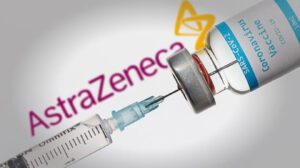
On August 16, Ukraine received 100,000 doses of the AstraZeneca vaccine from the Greek government, on August 18, 650,400 doses of the same vaccine from Poland and 46,000 doses from Lithuania as humanitarian aid, the Ministry of Health reported on Facebook.
According to the report, part of the vaccine from these supplies would be used to vaccinate those who should receive the second dose of AstraZeneca, the rest will be distributed between vaccination centers and vaccination points.
AstraZeneca is a COVID-19 vector vaccine manufactured in the EU, UK, South Korea and India. It is approved for emergency use by the World Health Organization and the European Medicines Agency.
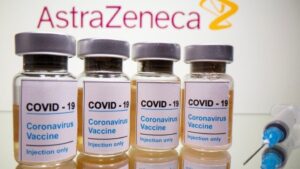
Experts from Kyiv School of Economics (KSE) recommend the Ministry of Health of Ukraine to reduce the interval between the first and second doses of AstraZeneca vaccine from 12 weeks to eight-four weeks.
“We recommend that the Health Ministry’s expert group should decide to reduce the interval between the first and second doses of AstraZeneca vaccine and accept the relevant recommendation from the Australian technical group. It suggests that it is advisable to reduce the interval to four-eight weeks during the period of an outbreak risk,” Head of the KSE Center for Health Care Economics Yuriy Hanychenko said during an online presentation of an analysis of the situation with the spread of COVID-19 on Tuesday.
Recent studies have shown a decrease in the effectiveness of one dose of AstraZeneca against the delta strain, he said, while two doses show similar effectiveness as against other strains.
“With a significant risk of an outbreak in Ukraine, those vaccinated with only one dose will receive little protection. This risk does not outweigh the benefit of the potential increase in efficacy with a second dose after 12 weeks,” Hanychenko said.
He also noted that a number of countries, in particular the United Kingdom and Australia, have already reduced the interval between the two doses.
In addition, the expert stressed that the epidemic situation in Ukraine continues to worsen, but remains under control so far.
“Beds with oxygen and resuscitation beds are loaded by 10% and 15%, respectively. The case detection rate is at 2.8%. At the same time, hospitalizations are already a quarter higher than discharges. That is, the gap between hospitalizations and discharges is increasing and the burden on the healthcare system is accelerating. Over the week, the number of patients increased by 16%, last week the growth was 9%,” he said.
Hanychenko stressed that the incidence is growing in 16 out of 25 regions. There were four such regions last week.
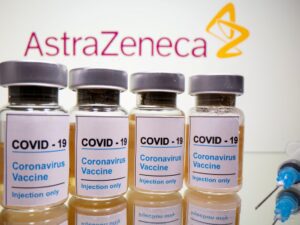
On May 31, the Ministry of Health of Ukraine registered a European-made AstraZeneca vaccine against COVID-19 for emergency medical use, according to the agency’s website.
The vaccine, developed by Oxford University and the British-Swedish company AstraZeneca, is reportedly manufactured in Italy and has the trade name AstraZeneca. The AstraZeneca emergency vaccine has already been approved by the World Health Organization and has also been approved by the UK, EU, India and Canada.
By the end of the week, within the framework of the global COVAX initiative, 705,600 doses of the AstraZeneca vaccine will arrive in Ukraine. It will be intended for vaccination with a second dose of those who have already passed the 12-week interval after the first vaccination, in particular, doctors and healthcare workers, JFO participants, social workers, clergymen, employees of the Ministry of Internal Affairs, the Security Service of Ukraine, persons aged 65+. Also, the second dose of the vaccine is guaranteed to people who were vaccinated with residual doses or public figures.
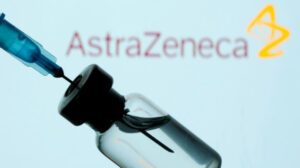
Ukraine has received 367,200 doses of the AstraZeneca-SKBio coronavirus vaccine made in South Korea and delivered by the UNICEF and the WHO within the COVAX facility’s framework.
This batch will be used for vaccinating priority groups and people aged 65 and up, Ukrainian Deputy Health Minister, chief public health official Viktor Liashko told Interfax-Ukraine.
According to the UNICEF press release, Ukraine will receive vaccines for the inoculation of 8 million residents by the end of 2021 via the COVAX facility.
The UNICEF noted that all vaccines supplied via the COVAX facility complied with the WHO safety and efficacy criteria.
“Importantly, against the backdrop of fierce competition and struggle for access to vaccines in the world, COVAX has been confirming in practice the fulfillment of tasks for which this global partnership has been created – to ensure fair opportunities for all,” the press release quoted Liashko as saying.
As reported earlier, the UNICEF delivered 117,000 doses of the Pfizer vaccine to Ukraine last week via the COVAX facility.
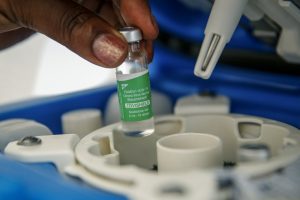
The independent laboratory Invitro will conduct research on the effectiveness of the vaccine CoviShield/AstraZeneca, a press release of the company says.
Head of the laboratory’s clinical diagnostic complex Pavlo Naboka said that the study will consist in checking the amount of antibodies that were produced after vaccination.
“According to the official instructions, the principle of action of the CoviShield vaccine is based on the development of specific immunity to the S-protein (spike) of the SARS-CoV-2 coronavirus (the causative agent of COVID-19). The presence of a sufficient amount of antibodies to this protein is a factor that protects a person from the development of the disease even in case of infection. It is possible to check how many antibodies have developed in the body after vaccination by using a new laboratory test by the world famous manufacturer Abbott Diagnostics to quantify the level of neutralizing (protective) antibo
During the entire COVID-19 vaccination process, blood samples will be taken from laboratory staff to monitor immune levels, he said. That is, the laboratory will assess how many antibodies to SARS-CoV-2 will appear in a person after the first and second vaccinations, at what rate of antibodies will be produced, whether the actual concentration of antibodies will correspond to the data reported by the vaccine manufacturer.
According to the instructions, a sufficient level of antibodies should be formed within 90 days after the first administration of the vaccine. That is, the laboratory Invitro will be able to announce the results of the study in the summer of 2021.
AstraZeneca, COVISHIELD, EFFECTIVENESS, INDEPENDENT LABORATORY, VACCINE
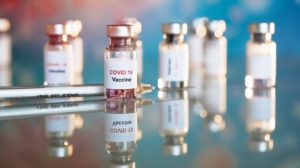
An Oxford/AstraZeneca (Covishield) vaccine for emergency medical use against coronavirus (COVID-19) was registered in Ukraine on Monday, the Health Ministry’s press service said.
During a press briefing in Kyiv on Tuesday, Deputy Health Minister Yaroslav Kucher said the vaccine will arrive in Ukraine in the morning on Tuesday.
Previously, the Oxford/AstraZeneca vaccine for emergency use has already been approved by the World Health Organization (WHO), and the UK, EU and India have also given permission for its use.
Oxford/AstraZeneca (Covishield) applied for registration with the State Expert Center of the Health Ministry on February 15. Ukraine has a law that simplifies the registration procedure for COVID-19 vaccines and reduces it to five working days.